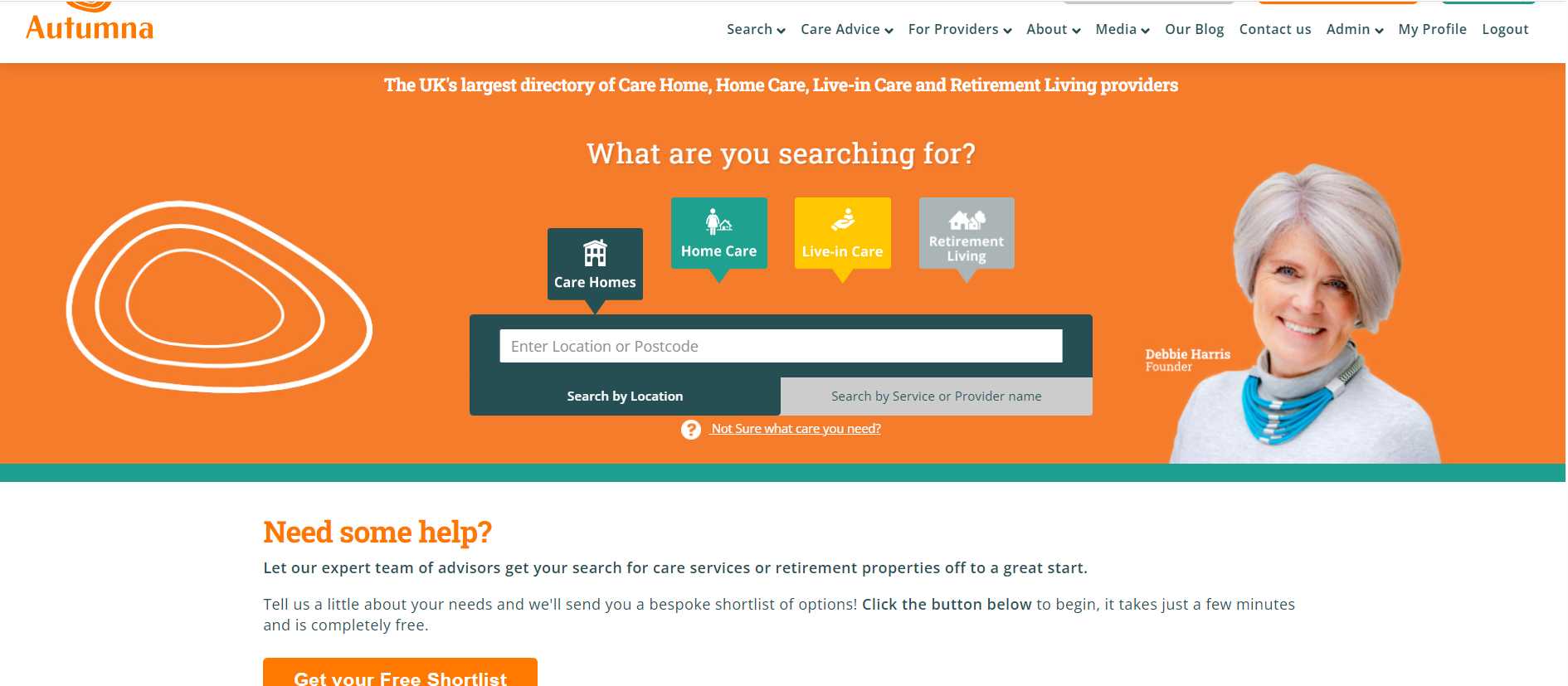Posted by Janine Griffiths
Guide to carer’s leave

Caring for someone you love can feel stressful and overwhelming at times.
This is why it is important to find the right balance between compassion and professionalism so it doesn’t lead to burnout.
One way to find that balance is by taking advantage of existing support that is out there - such as carer’s leave.
With over 6.5 million people in the UK acting as unpaid carers, the need for flexibility at work has never been greater. Carer's leave allows employees to take time off to manage caregiving responsibilities, which reduces stress and promotes work-life balance.
Not only does this benefit employees by preventing burnout, but it also helps employers by improving staff retention and productivity. As the number of working carers continues to rise, recognising the importance of carer's leave is crucial for all businesses.
In this blog, we will explore everything you need to know about carer’s leave.
Why carer's leave is essential
Being a carer can sometimes feel like a pretty thankless job. Of course, your main priority will be to ensure the health and wellbeing of your loved one but it does occasionally get overwhelming.
Carer’s need support too and unfortunately, much of the available support for unpaid carer’s has reduced over the years due to tightening local authority budgets. This is despite an increase in the number of unpaid carers.
However, carer’s leave is one form of support that carers can still take advantage of, and it offers essential time off to make it easier to balance your job with work.
It also means you don’t have to worry about losing your job when you take some much-needed time off. Studies show that when employees have access to carer's leave, it leads to better wellbeing, fewer absences, and increased workplace productivity. For example, research by Carers UK found that 72% of carers felt less stressed when supported by flexible leave policies.
For more information on how to balance your career with caring, check out our blog, ‘How to maintain your job while managing carer work.’
Current carer's leave entitlements in the UK
At present, carer's leave in the UK is largely unpaid and falls under the Employment Rights Act 1996. Employees are entitled to take a "reasonable" amount of unpaid time off to deal with an emergency involving a dependent, but this is often limited to short-term situations.
Under the current legislation, carers have the right to take up to one week of unpaid leave per year to care for a family member or someone they live with who has a long-term care need.
However, it is important to note that a ‘week’ in this context means the length of time a carer usually works over 7 days. For example, if someone usually works 3 days a week, they can take 3 days of carer’s leave.
Eligibility is expected to apply to all employees, regardless of their length of service. Requests for carer’s leave will likely need to be made in advance, to ensure that your company has enough time to put provisions in place.
How carer's leave can help you as an unpaid carer
Balancing work and caregiving can be overwhelming, especially when urgent or ongoing care is required. Carer's leave provides essential time off, allowing you to focus on your loved one's wellbeing without putting your career in jeopardy. Whether it's for a medical emergency or managing long-term care needs, carer's leave offers flexibility to address both short-term crises and extended caregiving responsibilities.
To request carer’s leave, you’ll need to inform your employer as soon as possible, explaining the circumstances and how much time off you need. While current UK legislation offers unpaid leave, you are protected from any negative impact on your employment status.
According to a poll published by Carers UK, half of those surveyed said they would find it easier to return to work after a period of absence if they had access to paid carer’s leave. The research also showed that 40% of those who have given up work or retired early to care, said paid carer’s leave would have helped them to stay in employment for longer, had it been available at the time. The survey also showed that supporting carer’s to stay at work would save the economy £5.3 billion.
Carer’s leave enables you to take the necessary time to care for your loved one, while also giving you the opportunity to recharge and manage your own wellbeing. By making use of this entitlement, you can balance both personal and professional responsibilities more effectively.
Why self care is important
Incorporating small self-care practices into your daily routine, such as taking regular walks, enjoying a hobby, or simply carving out quiet moments for yourself, can significantly improve your overall health. Seeking support, whether from family, friends, or professional respite care services, can also ease the burden, reminding you that you don’t have to handle everything on your own.
It is important to remember that taking time off for yourself isn't a luxury—it’s a necessity. When you’re constantly attending to someone else’s needs, it’s easy to overlook your own. The problem is that neglecting your own wellbeing can lead to chronic stress, anxiety, and even physical health issues. By prioritising your own wellbeing, you’re not only safeguarding your health, but you’ll also be more energised and capable of providing better care for your loved one.
Self-care isn’t selfish. Instead, it provides a break from the pressures of caregiving, giving you the opportunity to recharge and replenish your energies.
For more tips on self-care, check out our blog, ‘5 steps to build a self care routine.’
What if it all becomes too much?
Sometimes despite our best efforts, we find ourselves in a situation where carer’s leave alone just isn’t going to cut it. If you are at that point, it may be time to consider help for your loved one. Whether you are considering respite care, home care, or even residential care provision, Autumna can help you to find the support you need.
All you need to do is head over to our directory and select the type of care you need.

You can then type your preferred location in the search bar to view a list of care providers in your chosen area. Additionally, our FREE Shortlisting Tool allows you to answer a few quick questions to get a more personalised list of providers. Y
ou can also call our knowledgeable and friendly team of advisors on 01892 335 330 for more information.
Receive a Free Care Provider Shortlist!
Let our expert team of advisers get your search off to a great start.
Tell us a little about your needs and we'll send you a bespoke shortlist of care providers! Click the button below to begin, it takes just a few minutes.
Other articles to read
From the blog

Older Persons Care Advice
Ultimate guide to care homes in Norwich
April 23rd, 2025
Discover the best care homes in Norwich—explore lifestyle-focused options, top-rated services, and how to choose the right home with confidence.

Older Persons Care Advice
How to find an adult day care centre near you
April 22nd, 2025
Looking for an adult day care centre near you? Discover how to find safe, joyful care for your loved one—and support for yourself—on Autumna.

Older Persons Care Advice
How to shortlist care homes in Exeter
April 17th, 2025
Need help shortlisting care homes in Exeter? Learn how to filter options with confidence, compare homes, and find the best fit with Autumna’s free tools.
Frequently Asked Questions
Carer's leave is a form of unpaid time off that allows employees to care for a loved one, such as a family member or dependent with a long-term care need, without risking job security.
Most employees who are providing or arranging care for someone with a long-term care need in the UK are eligible for carer’s leave, regardless of how long they've been with their employer. The leave is generally offered for emergencies or ongoing care needs.
Employees are entitled to take up to one week of unpaid carer’s leave per year, though the actual length of leave corresponds to how many days they typically work in a week.
No, you don't get paid for carer's leave under the Carer's Leave Act 2023, which came into effect in April 2024.
To request carer’s leave, notify your employer as soon as possible, explaining the circumstances and how much time off you’ll need. You may need to provide details about your caregiving responsibilities.
No, carer’s leave is protected under UK employment law. Taking carer’s leave will not negatively impact your job or your employment rights, as long as it is requested appropriately.
Self-care helps unpaid carers manage their own physical and mental wellbeing, preventing burnout and exhaustion. It ensures carers can provide better, more focused care in the long run.






